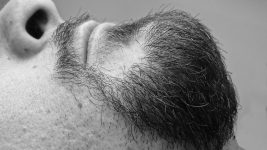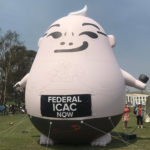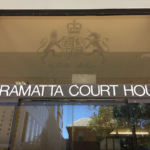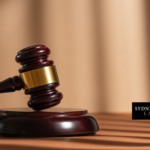Beards: A Hairy Business for Police

When taking a casual look around your local café, sporting club, supermarket or pub, you might notice that the beard is back. Not restricted to the usual stereotypes, the bearded bloke of the current era can be a refined one, found to be sporting a suit or a combination of hipster/urban apparel.
With the beard back in vogue, the appropriateness of police officers having beards has been assessed across various jurisdictions in Australia in recent times.
In 2012, Victoria Police banned beards, goatees, soul patches and other forms of facial hair other than neatly-trimmed moustaches and sideburns. 16 Victorian officers took their case to VCAT in protest. While the VCAT agreed it was discriminatory to restrict their facial hair choices, Victoria Police was made exempt from equal opportunity laws in mid-2012 when reviewing and revising their personal grooming policy, therefore leaving VCAT no option but to dismiss the claim.
One leading senior constable went on to appeal in the Supreme Court, and the decision was handed down earlier this month. Senior Constable Michael Kuyken was ordered to pay Victoria Police’s costs after Justice Garde upheld the original VCAT decision on the grounds that there was no error in judgement.
It was found that “The tribunal was not satisfied that having a goatee imparts any information or ideas, or conveys any meaning at all” relating to Senior Constable Kuyken’s identity when wearing a goatee.
What is the case in NSW?
The case for NSW Police officers is not as clear, and the personal grooming policy is not a publicly available one. However, the rules are clear in the recruitment manual for individuals attending the training academy. They require that:
“All male students will shave each morning before any class or parade unless wearing an approved style beard or moustache. These should conform to policy and be neatly trimmed.”
But why does it matter?
When Victoria Police decided to change grooming standards in 2012, an email was reportedly sent to members who continued to remain hirsute implying that a bearded officer would fail to present a professional appearance, and would be respected less by the general public as a result.
This leads into the arguments for and against facial hair, including that beards negatively affect the public perception of police officers, and that banning the beard discriminates against freedom of expression and religious beliefs.
The argument for the beard
The arguments that Senior Constable Kuyken presented on behalf of 15 other officers and himself in his case related to the following:
- Wearing beards because of religious beliefs.
- Shaving off facial hair reduced levels of attractiveness.
- Banning facial hair other than moustaches impacted on freedom of expression.
- Medical reasons for not shaving.
While the claims for Senior Constable Kuyken and the others were rejected, current officers can still apply to the Victorian Police Uniform and Appearance Advisory Committee for exemption to the ruling.
The argument against the beard
Victorian Police Commissioner Ken Lay’s changes to the policy to enforce a more traditional appearance of officers related to the notion that bearded officers do not command the same level of public respect that their clean-shaven counterparts do.
What about the future?
Police policies relating to grooming may differ across the nation. But the debate about whether to ban or allow the beard is likely to continue as society changes and visible evidence of self-expression and individuality becomes acceptable amongst employees in all industries.
NSW has already introduced a Body Art and Body Modification Policy in response to the prevalence of tattoos on police officers, as well as other modifications such as piercings.
Perhaps the beard will remain tolerated in NSW, but no matter what, Australian society will continue to follow trends and create new patterns of behaviour that may need to be considered by members of the police force.
While Mr Lay believes that a beard or goatee shows an officer to be unprofessional in appearance, perhaps it should be the conduct of the police officer – not their looks – that is the most relevant indicator of integrity and professionalism.






